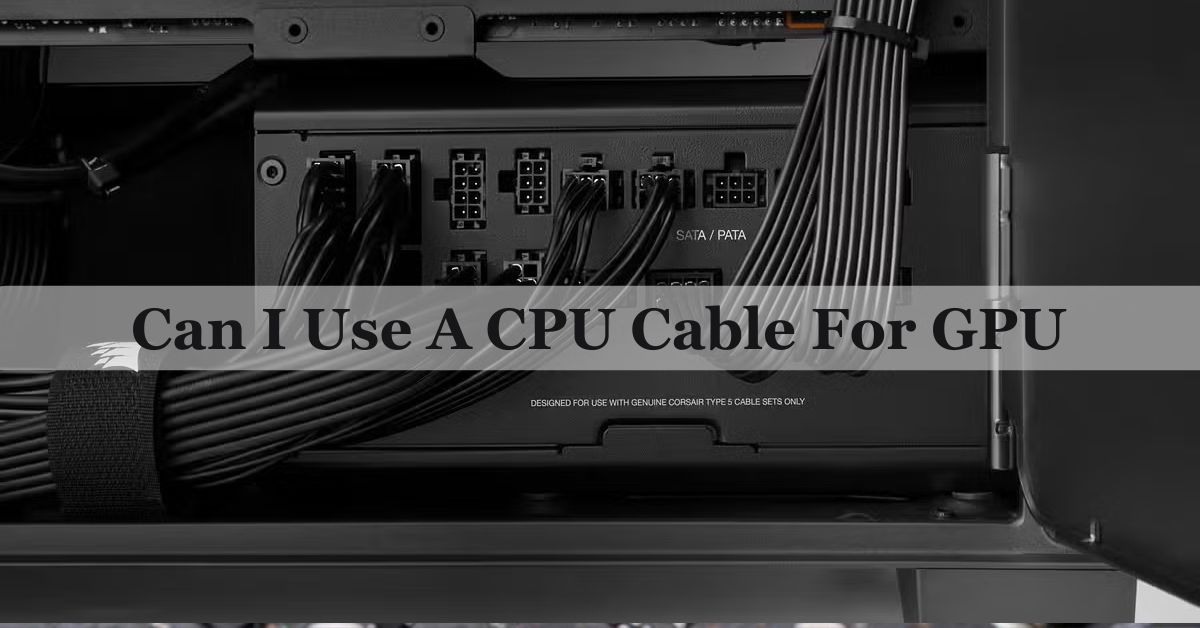I once mistakenly used a CPU cable for my GPU, and my system shut down unexpectedly. After switching to the correct PCIe cable, everything worked perfectly, avoiding potential damage.
No, you cannot use a CPU cable for a GPU. Although both may have 8-pin connectors, the power requirements and pin configurations are different. Using the wrong cable can cause damage to your GPU and other components.
Struggling, can I use a CPU cable for GPU? It might seem like an easy solution, but using the wrong cable can cause serious issues. Read on to learn why!
Understanding CPU And GPU Power Cables:
CPU power cables (EPS cables) provide power to the processor, while GPU power cables (PCIe cables) power the graphics card. They may look similar, but their pin layouts and functions are different. Using them interchangeably can cause damage. Always match the correct cable to the device for safe operation.
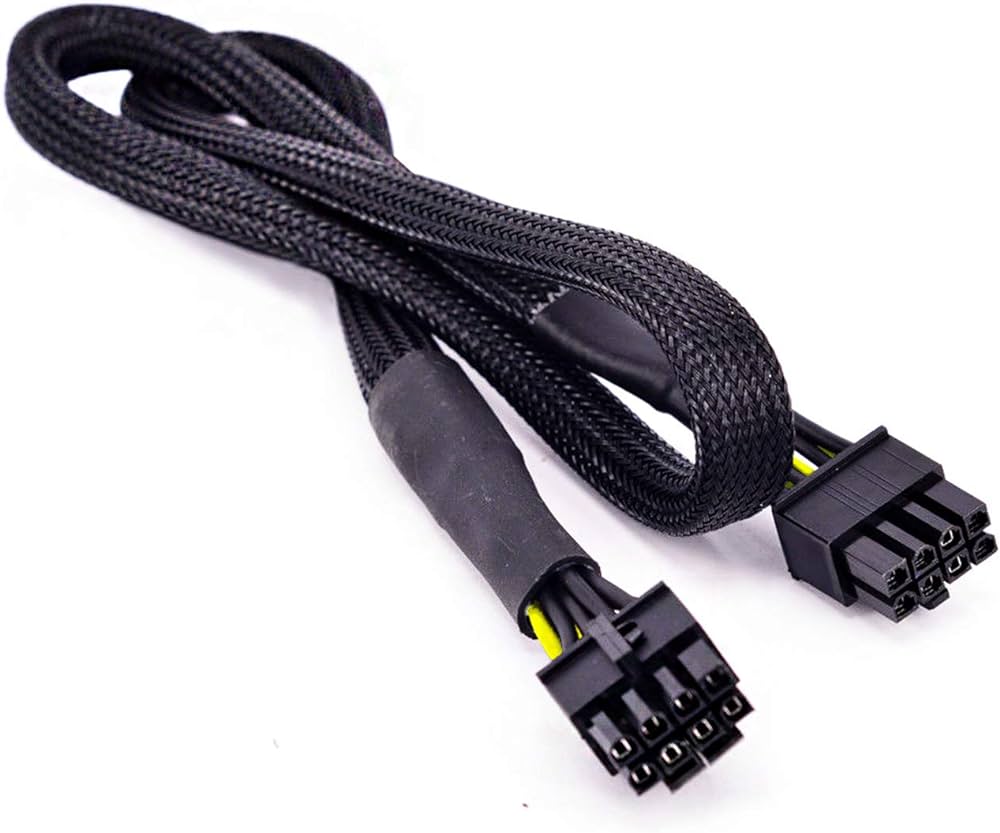
Can I Use A CPU Cable For GPU?
No, you should not use a CPU cable for a GPU. While they may look similar, CPU (EPS) and GPU (PCIe) cables have different pin layouts and power delivery purposes. Using the wrong cable can damage your components or cause power issues. Always use the correct cable specified for your GPU, and refer to your power supply manual for guidance.
Also Read: GPU Only Works In Second Slot – Isolate The Problem!
Key Differences Between CPU And GPU Cables
1. Connector Compatibility:
- CPU Cable: Designed for the EPS12V connector on motherboards.
- GPU Cable: Designed for PCIe slots on GPUs.
2. Pin Layout:
Although both cables may have 8-pin connectors, the wiring layout is different. Plugging a CPU cable into a GPU socket can misalign the power and ground pins, causing serious issues.
3. Voltage and Power Delivery:
- CPU Cables: Tailored to deliver power to processors with minimal fluctuations, prioritizing stability.
- GPU Cables: Engineered to provide power suitable for graphics cards, which typically have higher power demands under load.
Why You Should Not Use a CPU Cable for a GPU?
Using the wrong cable type, such as a CPU cable for a GPU, can lead to several problems:
1. Risk of Short Circuit:
The differing pin layouts can create a mismatch in power delivery, leading to short circuits that might damage the GPU, motherboard, or power supply.
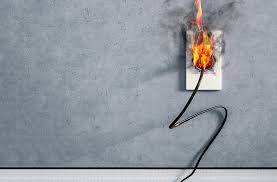
2. Component Damage:
Improper power delivery can permanently damage sensitive components such as the GPU or the PSU itself.
3. System Instability:
Using the wrong cable can result in erratic system behavior, including random shutdowns, crashes, or failure to boot.
4. Void Warranty:
Using incompatible cables may void the warranty of the power supply unit (PSU) or the GPU, leaving you unprotected in case of failure.
How To Ensure Proper Cable Usage?
To avoid potential risks, follow these best practices:
1. Check the PSU Manual:
The power supply’s manual will clearly indicate which cables are for CPU and GPU connections. Use it as your primary guide.
2. Labeling Matters:
Many modern PSUs have labeled cables, making it easier to distinguish between CPU (EPS) and GPU (PCIe) cables.
3. Avoid Adapters:
While adapters exist to convert CPU cables for GPU usage, these are not always reliable and can introduce additional risks. It’s best to use dedicated PCIe cables.
Also Read: CPU GPU Bottleneck Calculator – Find Bottleneck Issues Now!
4. Invest in Quality PSUs:
Using a reputable PSU brand ensures better labeling, cable quality, and compatibility. Quality PSUs often come with sufficient PCIe cables for powering GPUs.
What Happens If You Use The Wrong Cable?
If a CPU cable is mistakenly used for a GPU, several outcomes are possible:
- Immediate Shutdown: The PC may not power on, or it could shut down immediately.
- Component Damage: The GPU or PSU could sustain irreparable damage due to incorrect power delivery.
- Electrical Hazard: A short circuit might occur, potentially damaging multiple components or creating a fire hazard.
Can Modular PSU Users Swap Cables?
Modular PSUs offer flexibility by allowing users to connect only the cables they need. However, swapping cables between CPU and GPU ports can still be problematic:
- Cable Compatibility: Even if a cable fits, the internal pin wiring may differ, leading to incorrect power delivery.
- Brand-Specific Designs: Modular cables are often proprietary. Swapping cables between PSUs of different brands can cause serious damage.
Always ensure that the cables you use are designed specifically for your PSU model and its intended purpose.
Can I Use A PCI-e Cable In The 8-Pin Motherboard Plug?
No, you should not use a PCIe cable in the 8-pin motherboard (CPU/EPS) plug. PCIe and EPS cables have different pin layouts and power functions. Using a PCIe cable in a CPU plug can cause power delivery issues or damage your hardware. Always use the correct cable as specified by your motherboard and power supply manuals.
Can You Use An 8-Pin CPU Cable For A GPU?
No, an 8-pin CPU cable cannot be used for a GPU. Although they look similar, the wiring and pin configurations are different. CPU cables (EPS) supply power to the motherboard’s processor, while GPU cables (PCIe) power the graphics card. Using a CPU cable for a GPU can damage your hardware. Always use the correct cables.
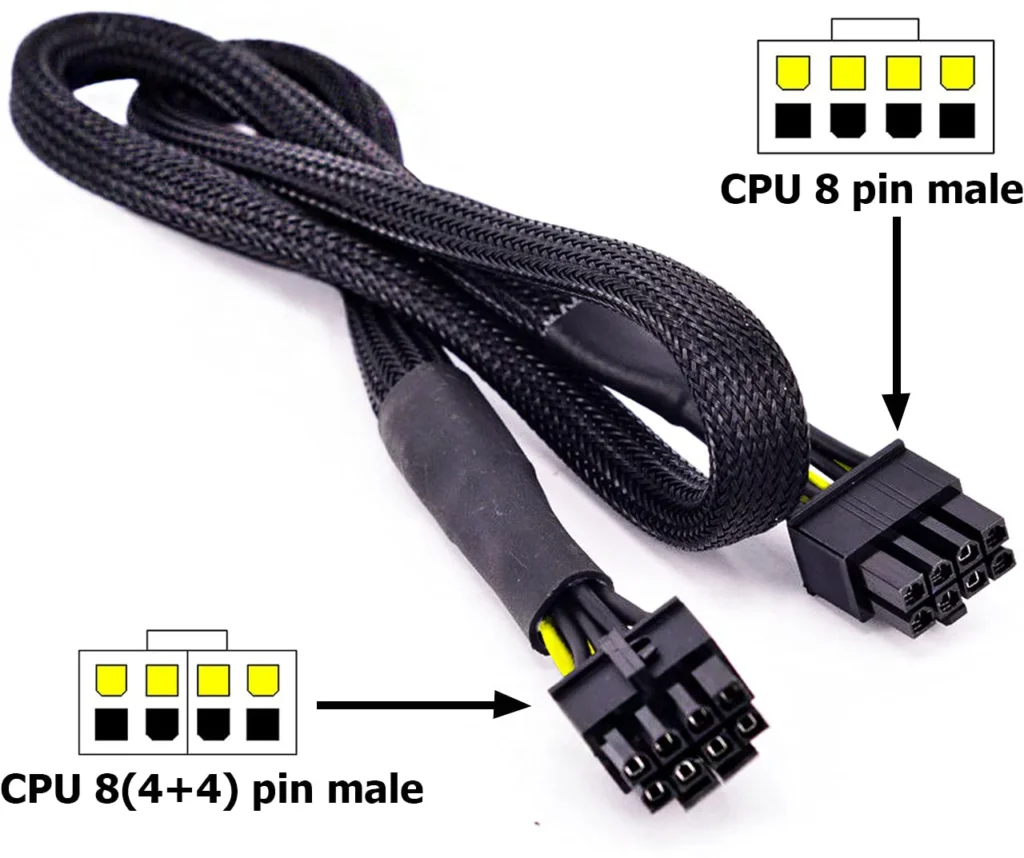
What Cable Is Needed For GPU?
A GPU needs PCIe power cables to operate. These cables come in 6-pin, 8-pin, or combined configurations like 6+2 pin, depending on your GPU’s power requirements. These connect from your power supply to the GPU. Always use the correct cable specified by your GPU and power supply to ensure safe and efficient operation.
Also Read: Is CS2 CPU Or GPU Intensive – Find Performance Balance!
Can I Use A CPU Power Cable For My GPU?
No, you cannot use a CPU power cable for your GPU. CPU (EPS) and GPU (PCIe) cables may appear similar but have different pin layouts and purposes. Mixing them can cause damage or power failure. Always use the specific PCIe cable provided with your power supply for your GPU to ensure safe and proper operation.
Are CPU And GPU Cables The Same?
No, CPU and GPU cables are not the same. CPU cables (EPS) power the processor, while GPU cables (PCIe) supply power to the graphics card. They may look similar, but their pin configurations and purposes differ. Using the wrong cable can lead to compatibility issues or hardware damage, so always use the correct cables.
Do You Need Two PCIe Cables For GPU?
Whether you need two PCIe cables for your GPU depends on its power requirements. High-performance GPUs often require more power and may need two separate PCIe cables for stable operation. Using two cables ensures better power delivery and reduces the risk of overheating. Always check your GPU’s manual to know how many cables are needed.
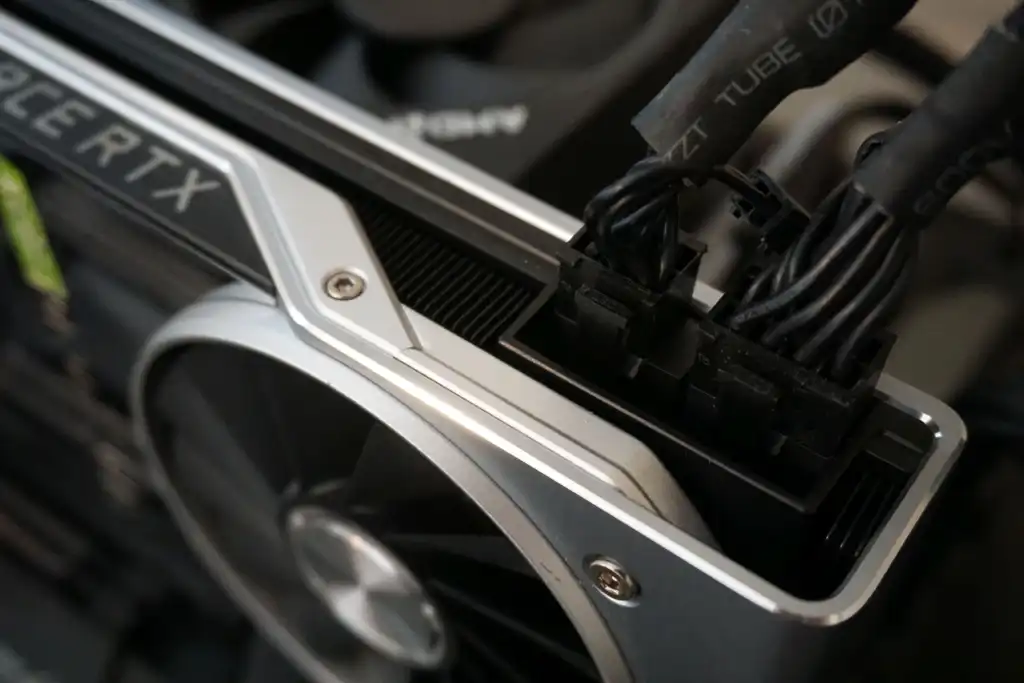
Use CPU Power Connector For GPU?
You should not use a CPU power connector for a GPU. CPU (EPS) connectors are designed for the motherboard, while GPU (PCIe) connectors are specifically made for graphics cards. The pin layout and power requirements are different, so using the wrong connector can damage your components or cause instability. Always use the correct cables for each part.
Also Read: GPU Power Consumption Drops – Solve Power Drops Today!
Can I Power A Card Using CPU EPS Cable + Adapter?
While it’s possible to use a CPU EPS cable with an adapter to power a GPU, it is not recommended. The power delivery and pin configurations are different, and using an adapter can cause instability or damage to your components. It’s safer to use a dedicated PCIe cable designed for GPUs to ensure proper power supply and prevent potential issues.
Can I Use One Of The “CPU” Cables As A “PCIe” Cable On A RM1000x PSU?
No, you should not use a “CPU” cable as a “PCIe” cable on an RM1000x PSU. Although the connectors may look similar, they have different pin configurations and power requirements. Using the wrong cable can cause damage to your GPU or PSU. Always use the cables labeled for PCIe to ensure proper power delivery and safety.
Power GPU From CPU Socket On PSU:
Powering a GPU from a CPU socket on the PSU is not recommended. The CPU socket (EPS) and GPU socket (PCIe) are designed for different power requirements.
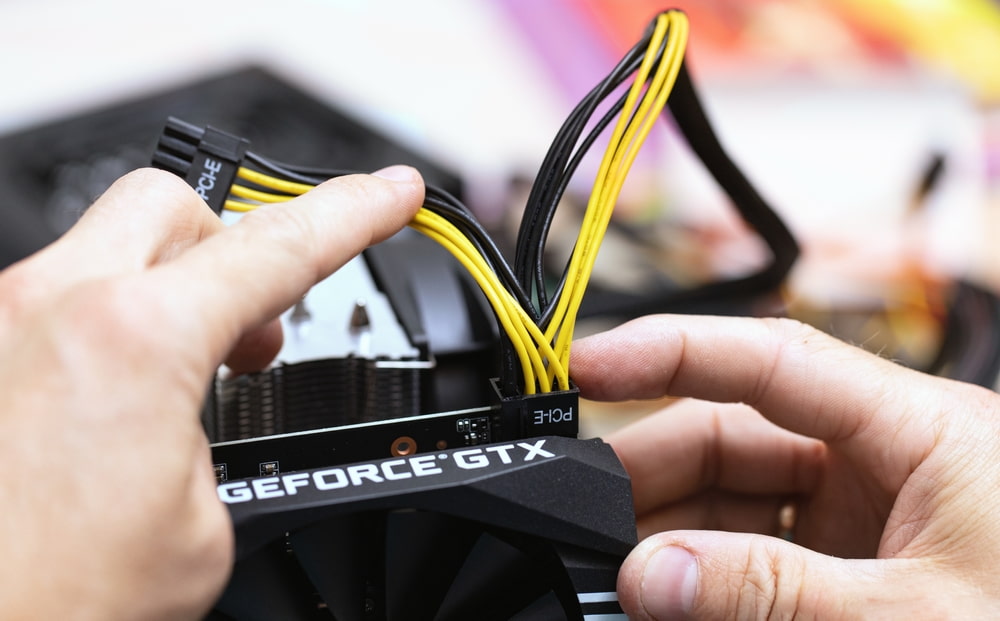
CPU sockets deliver power suited for the motherboard and processor, while GPU sockets are built to handle the higher power needs of the graphics card. Using the wrong socket can cause damage to components.
How To Correctly Connect PSU Cables And Power A GPU?
To correctly connect PSU cables and power a GPU, first, ensure you use the right cables—PCIe cables for the GPU. Check your power supply for labeled connectors and connect the cables from the PSU to the GPU’s power ports (usually 6-pin or 8-pin). Make sure cables are securely plugged in to avoid power issues or damage.
What Happens If I Accidentally Plugged CPU Cable Into GPU?
If you accidentally plug a CPU cable into a GPU, it can cause serious issues. The power delivery might be incorrect, leading to a short circuit, component damage, or system instability. Your GPU or power supply could get damaged, and the PC might not turn on or could shut down unexpectedly. Always use the correct cable for each component.
Also Read: PS5 GPU Equivalent – Find Your GPU Match Now!
Can I Use A CPU Cable For GPU Gaming?
No, you cannot use a CPU cable for GPU gaming. CPU and GPU cables have different pin configurations and power requirements. CPU cables are designed for the motherboard, while GPU cables supply power to the graphics card.
Using the wrong cable can damage your components or cause your system to malfunction, affecting gaming performance. Always use the correct cable for each component.
Can I Use PCIe Cable For CPU Power?
No, you should not use a PCIe cable for CPU power. PCIe cables are designed to power GPUs and provide different voltages and pin configurations compared to CPU power cables (EPS). Using a PCIe cable for the CPU can cause instability or damage to your components. Always use the correct cable specified for each component, as per your power supply’s manual.
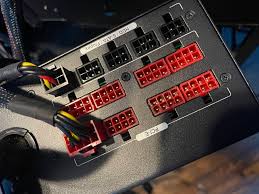
FAQs:
1. Can I Use A 6-Pin CPU Cable For A GPU?
No, a 6-pin CPU cable is not designed for GPUs. It may not deliver the right power to the GPU and could cause instability.
2. What Happens If I Use The Wrong Cable For My GPU?
Using the wrong cable can cause damage to your GPU, power supply, and other components, potentially leading to system failure or fire.
3. Can I Use The CPU Port On My PSU To Power A GPU Since They’re Both 8-Pin?
No, you should not use the CPU port on your PSU to power a GPU, even if both are 8-pin. The power delivery is different, and using the wrong cable can damage your components.
4. Can I Use A Modular PSU Cable For A GPU?
Yes, if the modular PSU cable is labeled for PCIe/GPU power, it is safe to use. Just ensure it’s the correct cable type.
5. What Type Of Cable Does A High-End GPU Need?
High-end GPUs typically require 8-pin PCIe cables or two 6+2-pin cables for higher power demands. Always check the GPU specifications for exact requirements.
6. Can I Use An 8-Pin CPU Cable On An 8-Pin GPU Socket?
No, an 8-pin CPU cable is not suitable for an 8-pin GPU socket. The power delivery and pin layout are different, which could cause damage.
7. What Is The Difference Between A PCIe Cable And A CPU Cable?
PCIe cables are designed to power GPUs and provide higher wattage, while CPU cables power the CPU via the motherboard and deliver a different voltage.
8. Can I Use A CPU Cable For A GPU On A Low-Powered GPU?
Even on low-powered GPUs, using a CPU cable can cause power issues. It’s still recommended to use the correct PCIe cable.
9. Can I Use The Same PSU Cables For Different GPUs?
It depends on the GPU’s power requirements. As long as the PSU cables meet the wattage and connector type needed by the GPU, they should work. Always follow the GPU and PSU guidelines.
10. Do I Need To Buy A Separate Cable For My GPU?
Yes, GPUs require specific PCIe cables. These are different from CPU cables and should be purchased separately if not included with your PSU.
Final Words:
In conclusion, you should never use a CPU cable for a GPU, even if they both have 8-pin connectors. CPU and GPU cables have different power requirements, pin layouts, and voltages. Using the wrong cable can damage your components, cause instability, or even create electrical hazards. Always use the correct PCIe cable designed specifically for your GPU.
Related Posts:
- Red Light On GPU When Pc Is Off – Don’t Panic, Check This Now
- GPU Only Works In Second Slot – Isolate The Problem!
- Is BeamNG CPU Or GPU Intensive – Boost Your Setup In 2024!
- Can You Use AMD GPU With Intel CPU – Complete Guide 2024!
- Does AMD GPU Work With Intel CPU – A Comprehensive Guide 2024!

